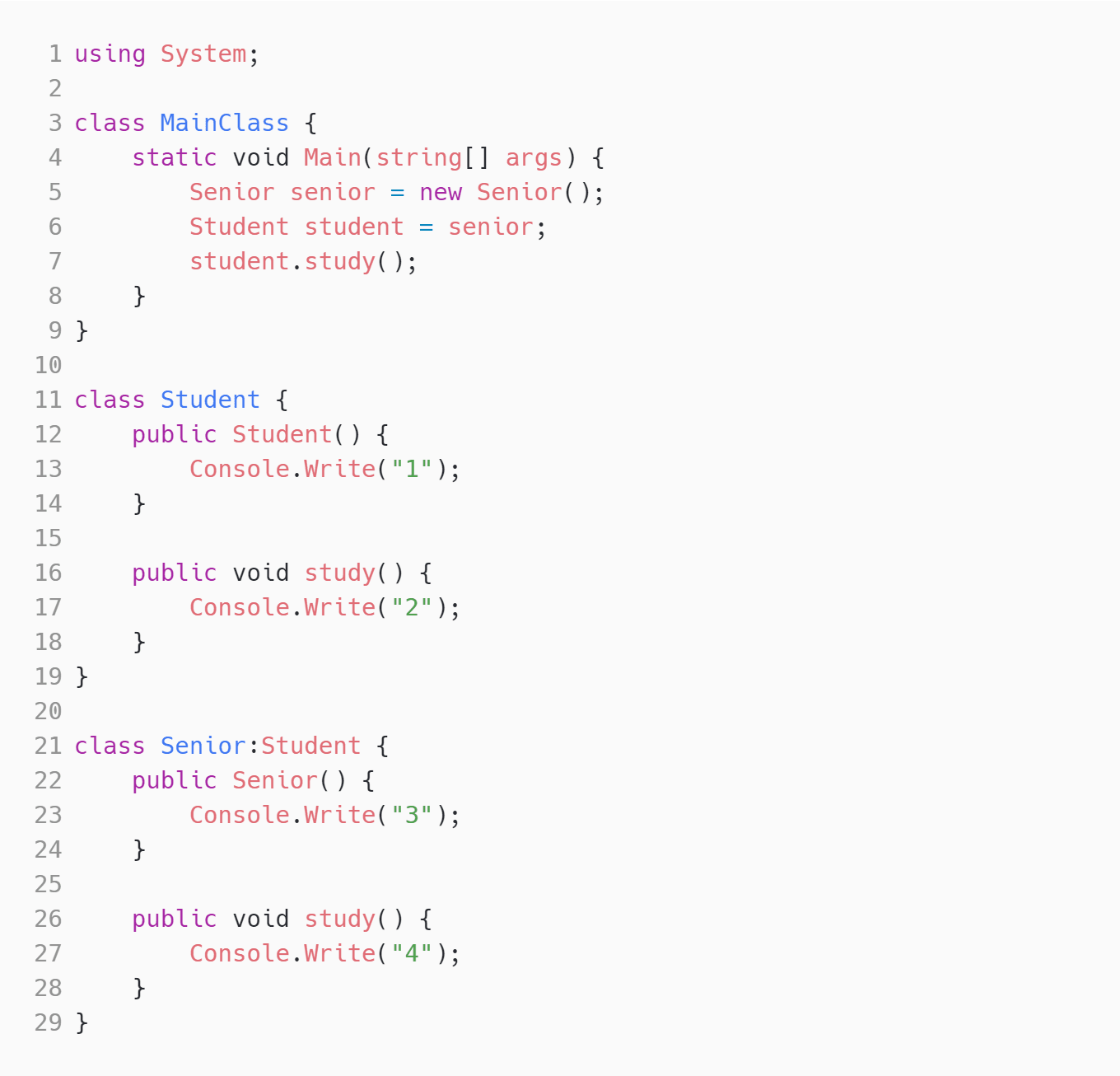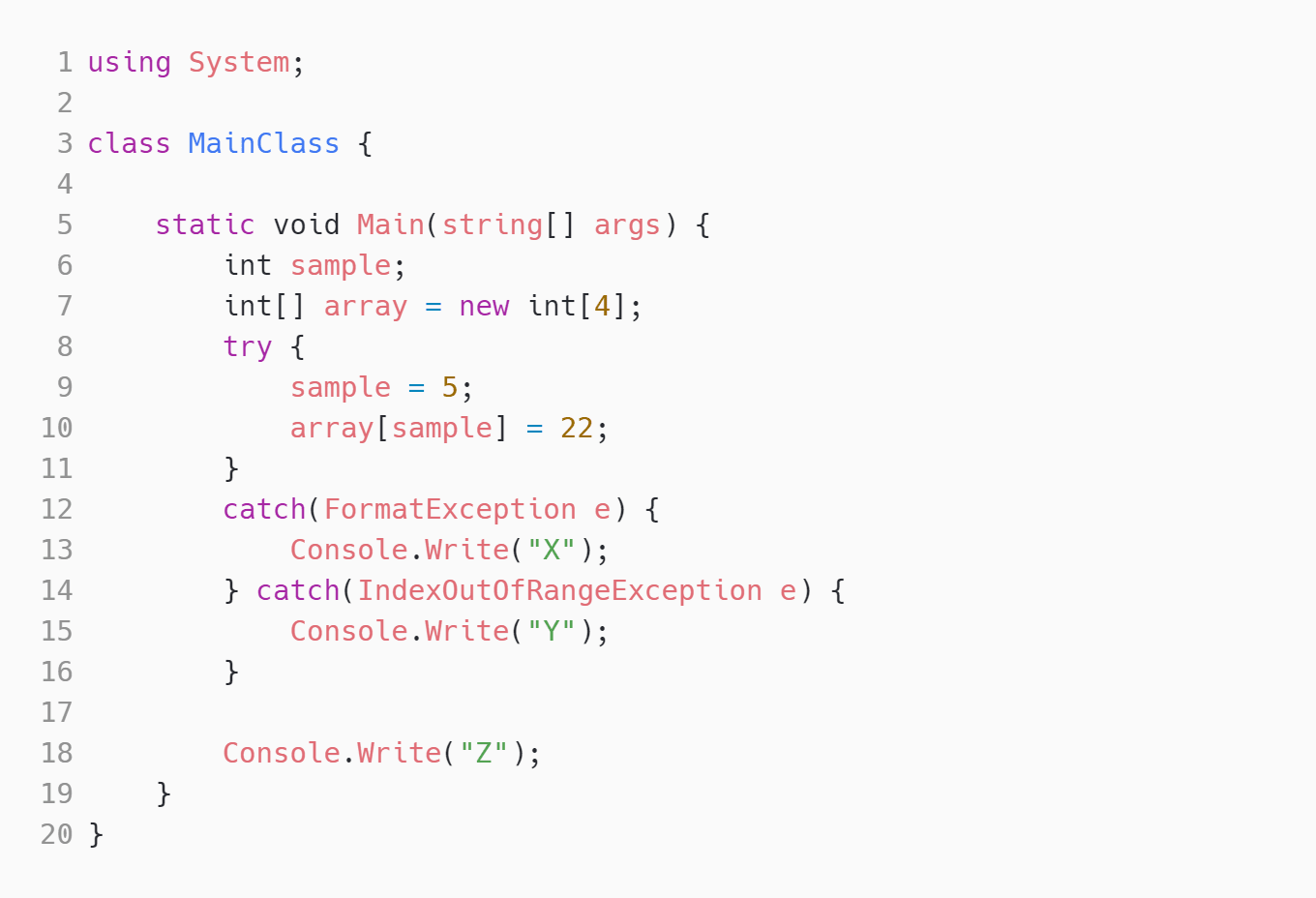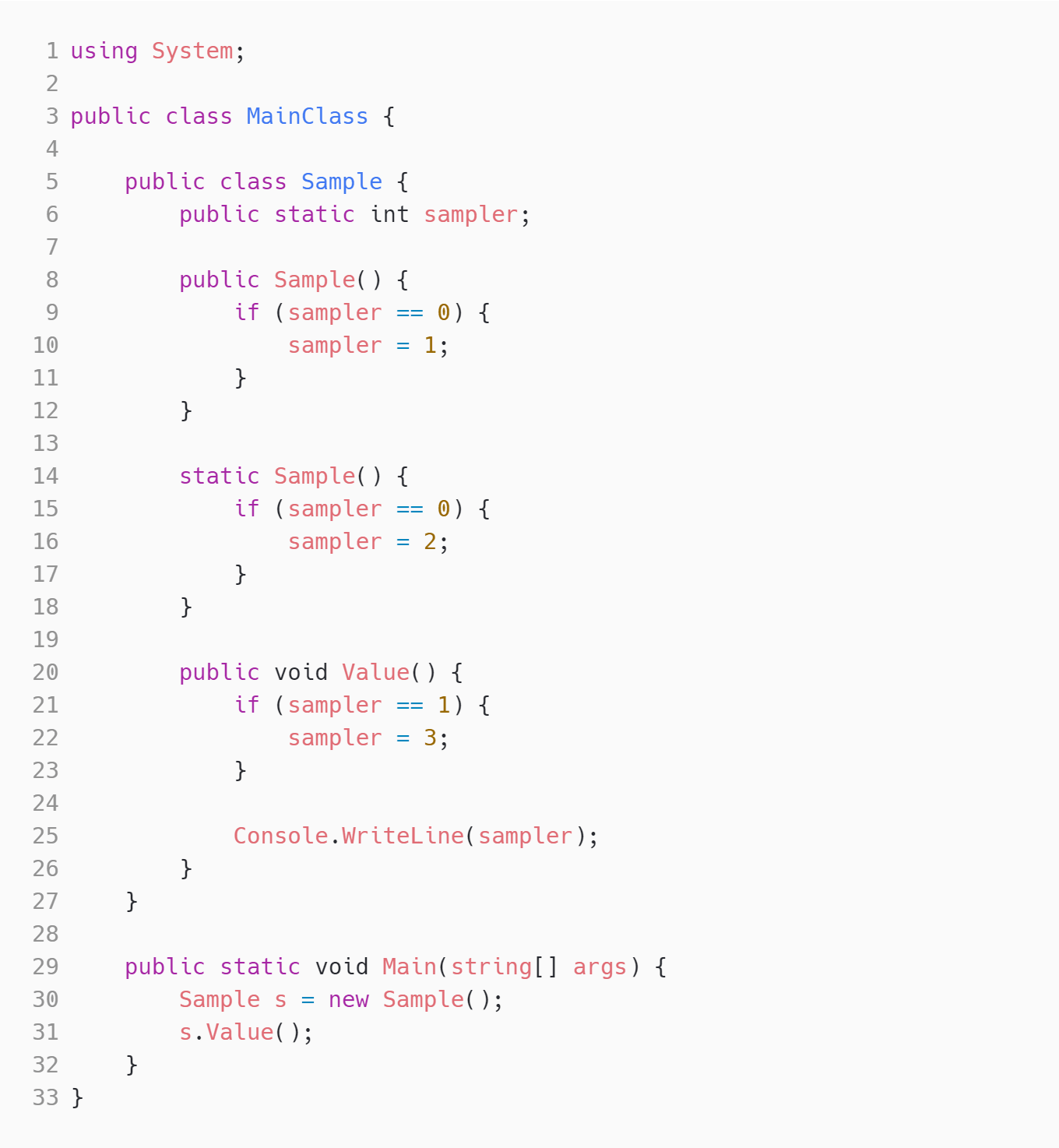C# Basics: C# Basics refers to the fundamental concepts and syntax of the C# programming language. It includes topics such as data types, variables, control structures, and basic input/output operations. This skill is measured in the test to assess the candidate's foundational understanding of C# development.
OOP concepts (Objects; Classes; Methods): OOP concepts in C# involve understanding the principles of object-oriented programming, including objects, classes, and methods. This skill is important to measure as it demonstrates the candidate's ability to design and implement modular and reusable code using object-oriented principles.
Inheritance and polymorphism: Inheritance and polymorphism are crucial concepts in OOP. In C#, inheritance allows classes to inherit properties and methods from parent classes, while polymorphism enables objects to take multiple forms. Evaluating this skill helps determine the candidate's proficiency in leveraging inheritance and polymorphism to create more flexible and scalable code.
Dealing with Errors/ Exceptions and Nulls: Handling errors, exceptions, and null values is essential in any robust software development process. This skill measures the candidate's ability to identify and handle potential runtime errors, exceptions, and null references in C# code, ensuring the application's stability and reliability.
Garbage Collector and Memory footprint: The Garbage Collector in C# automatically manages memory allocation and deallocation. It is responsible for reclaiming memory occupied by objects that are no longer in use. Understanding the Garbage Collector and keeping memory footprint in check is crucial for optimizing application performance and preventing memory leaks.
Structural and Creational Design Patterns: Structural and Creational Design Patterns provide reusable solutions to common software design problems. Evaluating this skill allows recruiters to assess the candidate's understanding of design patterns such as Singleton, Factory, and MVC, and their ability to apply these patterns to create flexible and maintainable code.
C# Multithreading: C# Multithreading involves executing multiple threads simultaneously to achieve concurrent execution and improve performance. Measuring this skill helps identify candidates who are proficient in writing efficient and thread-safe code, enabling them to leverage parallelism and optimize resource utilization in multi-threaded applications.
C# Networking: C# Networking involves developing applications that communicate over network protocols such as TCP/IP or UDP. This skill is important to measure as it assesses the candidate's ability to implement networking functionalities, handle client-server communication, and troubleshoot network-related issues in C# applications.
























































